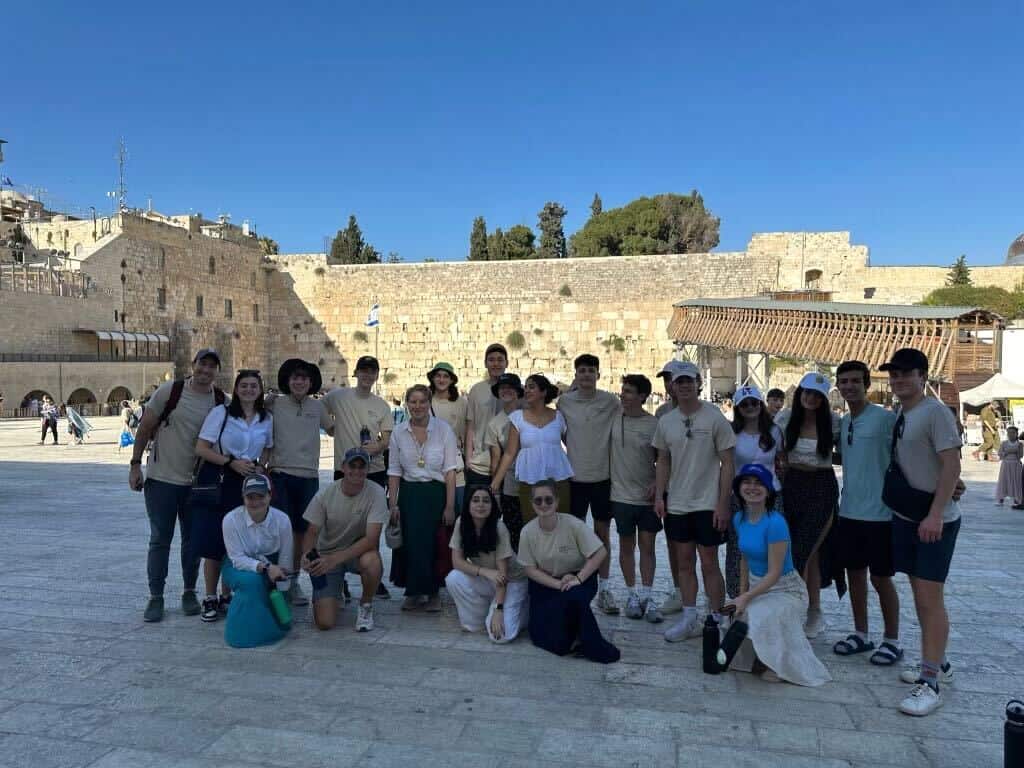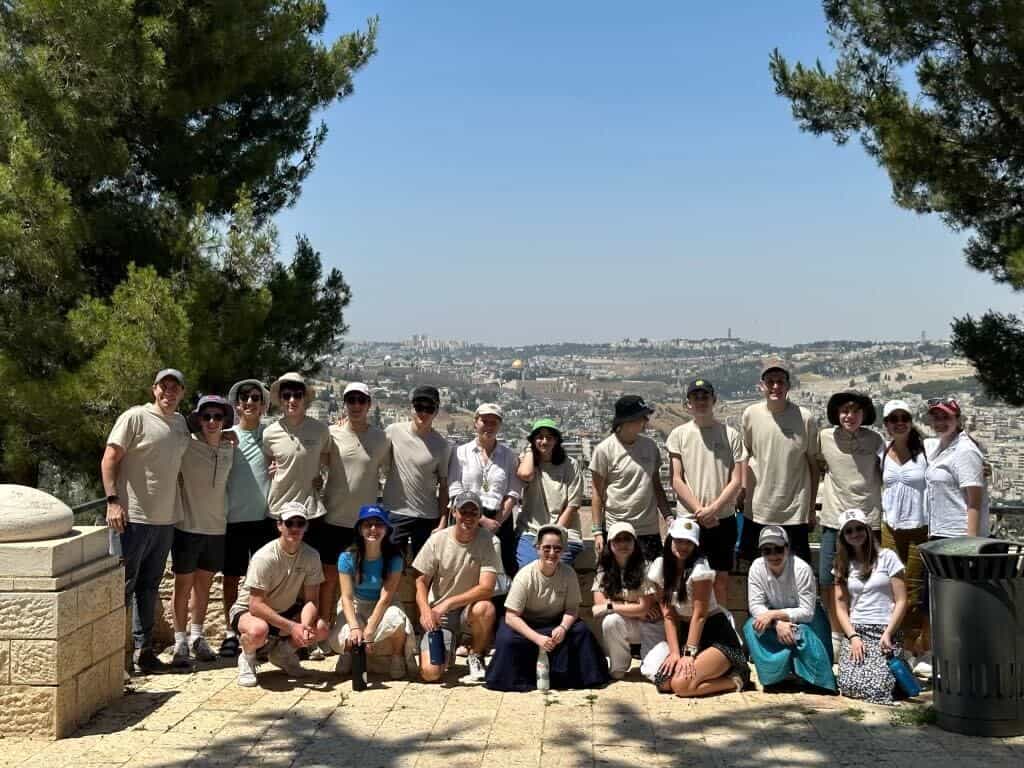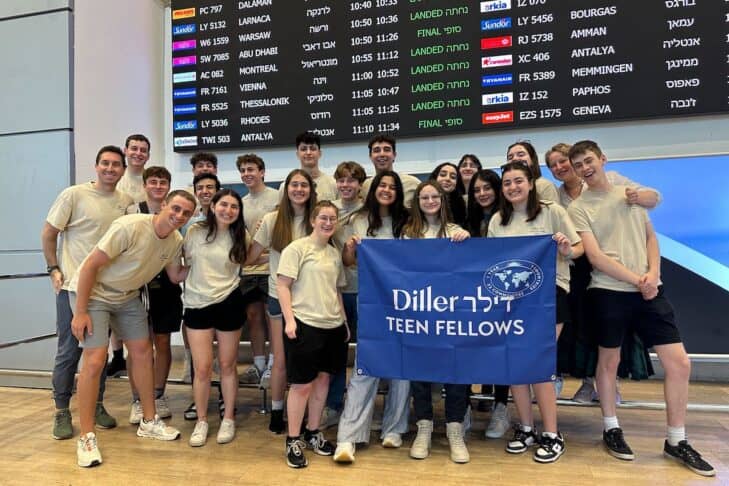“32 communities, 7 countries, 1 global Jewish family.” The Diller Teen Fellows’ slogan promises a unique experience, connecting teens to an international community and a diverse array of perspectives. After returning from the yearlong program’s capstone trip to Israel, I can wholeheartedly state that the promise was delivered.
Going into Diller as a part of the Boston cohort, I knew no one, had never been to Israel, and had no idea what to expect. All I knew was that I wanted to break out of the liberal, Reform bubble I had been surrounded by for the past 12 years. From the very first mifgash—educational meeting—that bubble was smashed as I explored my Jewish identity along with my cohort. The fellows ranged from nearly secular all the way to Orthodox, and this broad spectrum of Judaism opened the floor for fascinating conversations and moments of self-discovery within the cohort.
“Diller [is] a way to get to know Jews who look at the world in a way different to how you see it,” said Ben, another Boston fellow.
I walked away from those first few mifgashim with a much stronger connection to the Jewish Boston community, and a better understanding of the Jews existing within it.
This connection only grew as we progressed through the year completing social justice projects, attending weekend shabbatonim, and continuing to have thought-provoking conversations about our intersecting identities. All the while, the year slowly inched closer to the three-week Israeli Summer Seminar (ISS), the final chapter in our Diller experience.

As the trip loomed in front of me, I was frequently asked two questions: What am I hoping to get out of this experience, and what does Israel mean to me, as a Jew? My answer to the first question was always that I hoped to find an answer to the second. As a young child, I was always taught that Israel was the Holy Land, but that narrative quickly changed to that of Israel’s “inhumane policies,” and I was left in the middle, unsure of how Israel fit into my Jewish identity, if it did at all.
Those skills and relationships I built over the past year formed the basis for me to find these answers, as our cohort made the lengthy flight to Israel. Right off the bat, our coordinator prefaced that this was not going to be a typical trip to Israel. We were not going to see all of the sights, and slowly make our way through a tourist checklist. Instead, we were focusing on experiencing the many faces of Israel. We spoke to right-wing Jews, left-wing Jews, Moroccan Jews, Ethiopian Jews, Jews in the IDF, Palestinians, and protesters. My idea of what it meant to be an Israeli was broadened so wildly by these experiences.
“We heard from so many people about the different aspects of difficult situations, and it added a new layer to our group discussions,” said Ariel, another Boston fellow.

What’s more, we got the chance to meet Jews from all around the world during Diller’s Global Congress, which opened my eyes to the intricacies of Judaism, and the regional similarities and differences of the religion that make it so special. All of these experiences were only heightened by the conversations we had as a group afterward. Because of our previously established relationships, our cohort could talk freely with one another, enhancing what we each took away from the experience.
We ended the ISS with “community week,” where our fellows stayed in the homes of our partner cohort, Haifa, and explored the city and its culture. In a way, this was a perfect ending. Despite hearing from so many people in Israel, I often find it hard to picture them existing outside of their interactions with me. Living in the home of an Israeli and experiencing their day-to-day life allowed me to better recognize the perspectives of the people I spoke to in Israel, and provided a whole new understanding for me to take home.
Back in America, I was once again bombarded by relatives asking me what Israel meant to me. They expected my three weeks there would have created a clear answer, and, quite honestly, I had expected that too. But Israel is not just some custom of Judaism. It is not a holiday or a piece of clothing that can so easily be categorized into its place. It is a complex country filled with complex people and an even more complicated history. So when I am asked about my relationship with Israel, the only answers I can come up with are that there is no right way to be Jewish, and there is no right way to feel about Israel. I am forever grateful that this year with Diller finally allowed me to understand this.
This post has been contributed by a third party. The opinions, facts and any media content are presented solely by the author, and JewishBoston assumes no responsibility for them. Want to add your voice to the conversation? Publish your own post here. MORE



